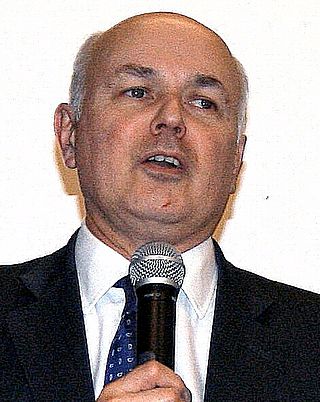
The 2003 United Kingdom local elections were held on Thursday 1 May 2003, the same day as the Scottish Parliamentary and the Welsh Assembly elections. There were local elections for all councils in Scotland and in most of England. There were no local elections in Wales, Northern Ireland or London.

Referendums in the United Kingdom are occasionally held at a national, regional or local level. Historically, national referendums are rare due to the long-standing principle of parliamentary sovereignty. Legally there is no constitutional requirement to hold a national referendum for any purpose or on any issue. However, the UK Parliament is free to legislate through an Act of Parliament for a referendum to be held on any question at any time.

The 1995 United Kingdom local elections took place on Thursday 6 April 1995 in Scotland, and Thursday 4 May 1995 in England and Wales. The Conservative Party lost over 2,000 councillors in the election, while the Labour Party won 48% of the vote, a record high for the party in local elections.

Salford was, from 1844 to 1974, a local government district in the county of Lancashire in the northwest of England, covering the city of Salford. It was granted city status in 1926.

The first elections to the new local authorities established by the Local Government Act 1972 in England and Wales and the new Northern Ireland district councils created by the Local Government Act 1972 took place in 1973. Elections to the existing Greater London Council also took place.

The Municipal Borough of Heywood was, from 1881 to 1974, a local government district in the administrative county of Lancashire, England, with borough status and coterminate with the town of Heywood.

Elections for the Scottish district councils were held in 1980.

The 2012 City of Lincoln Council election took place on 3 May 2012 to elect one-third of the members of City of Lincoln Council in Lincolnshire, England, for a 4-year term of office. This was on the same day as other 2012 United Kingdom local elections.
The second election to the Glamorgan County Council was held on 8 March 1892. The 1889 election was the first contest and the next was the 1895 election. Glamorgan County Council had been established by the 1888 Local Government Act, and the first election held in January 1889. Glamorgan was by far the largest county in Wales in terms of population. The county of Glamorgan was at this time becoming heavily industrialised, although some areas such as the Vale of Glamorgan remained essentially rural. The rise of nonconformist liberalism, especially since the 1860s, throughout Wales, had challenged the prevailing influence of the landed gentry. However, even in 1889, the traditional forces remained influential and no working men were elected to the council. This changed in 1892 with the unopposed return of David Morgan in Aberdare and the success of Isaac Evans in Resolven.
The third election to Glamorgan County Council was held on 4 March 1895. It was preceded by the 1892 election and followed by the 1898 election.
The 1964 Hammersmith Council election took place on 7 May 1964 to elect members of Hammersmith London Borough Council in London, England. The whole council was up for election and the Labour party gained control of the council with almost 63% of the vote.
The 1964 Havering Council election took place on 7 May 1964 to elect members of Havering London Borough Council in London, England. The whole council was up for election and the council went into no overall control.
Elections for the London Borough of Merton were held on 4 May 1978 to elect members of Merton London Borough Council in London, England. This was on the same day as other local elections in England and Scotland.
Local elections took place in the United Kingdom in 1969.
Wiltshire County Council elections were first held on 23 January 1889, with the election of the first Wiltshire County Council. Thereafter, elections were held every three years, with all members being elected on the same day. Later, the cycle was changed to one election in every four years, and the last such election was in 2005. There were also occasional by-elections, the last of which took place in February 2008.

Cardiff County Borough Council, known as Cardiff City Council after Cardiff achieved city status in 1905, was the elected local authority that administered the town and county borough of Cardiff, Glamorgan, Wales between 1889 and 1974. The county borough council was replaced in 1974 by a district council, covering part of South Glamorgan and also known as Cardiff City Council.
The 1967 Cardiff City Council election was held on Thursday 11 May 1967 to elect councillors to Cardiff City Council in Cardiff, Glamorgan, Wales. It took place on the same day as several other county borough elections in Wales and England.
The 1966 Cardiff City Council election was held on Thursday 12 May 1966 to elect councillors to Cardiff City Council in Cardiff, Glamorgan, Wales. It took place on the same day as several other county borough elections in Wales and England.
The 1972 Newport County Borough Council election was held on Thursday 4 May 1972 to elect councillors to the Newport County Borough Council in Newport, Monmouthshire. It took place on the same day as other district and county borough council elections in England and Wales.
The 1972 Cardiff City Council election was held on Thursday 4 May 1972 to elect councillors to Cardiff City Council in Cardiff, Glamorgan, Wales. It took place on the same day as several other county borough elections in Wales and England.









